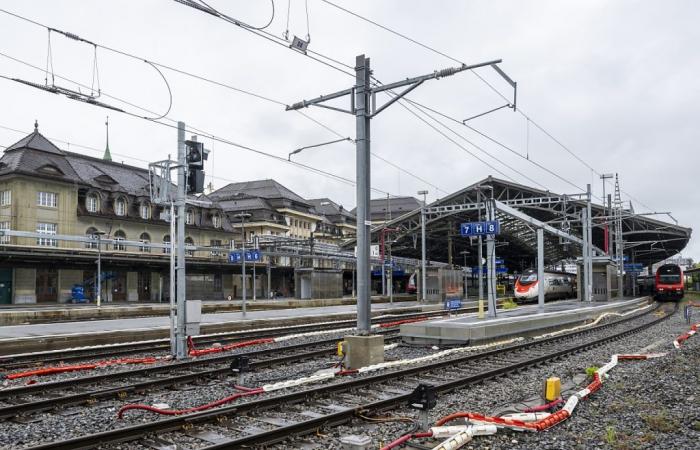Keystone-SDA
This content was published on
June 16, 2024 – 06:09
(Keystone-ATS) The head of the Federal Office of Transport (FOT) on Sunday rejects criticism of the expansion of rail infrastructure. “In 2040, operation and maintenance costs, including costs due to investments, will be covered,” he assures.
Maintenance costs will concern two thirds of the means of the railway infrastructure fund, specifies Peter Füglistaler in an interview broadcast by the NZZ am Sonntag. The rest will be available for development, he adds. “No one wants to reduce these resources. The fund is very solidly financed.”
However, restrictions exist for new projects outside the extension adopted by Parliament as part of the 2035 supply concept, recognizes Mr. Füglistaler. “Other wishes for new projects that have not yet been adopted are not feasible until 2033. Only after this date will financial means be available for other expansion projects” .
Lack of qualified personnel
It is not money that is lacking in the first place, but qualified personnel, he continues. “The rail network also cannot support more construction sites, otherwise punctuality will suffer even more. On the other hand, all the extension projects already decided in Parliament are important”.
The director of the OFT does not think that a moratorium on developments, requested in particular by the former head of the SBB Benedikt Weibel, is necessary. “If we do this, public transport will lose its future. Already today, the trains are full,” remarks Mr. Füglistaler. The extension will provide 20% more seats and increase the schedule, he notes.
According to him, the fact that journeys are sometimes a little slower is not relevant in view of the additional connections and more modern trains. “Public transport has increased its market share each time we have expanded the offer.”
The increase in rail capacity by a quarter proposed by Mr. Weibel’s group of experts, without development, ignores freight traffic, notes Mr. Füglistaler. This additional capacity “results from the elimination of goods traffic which only circulates in Switzerland”, he adds.
Road too cheap
To achieve a transfer from road to rail, the price ratio must be addressed, believes Mr. Füglistaler. “In terms of costs, the route is very attractive. If this point is not addressed, the market share of public transport will only be able to grow to a limited extent”. One solution could be a congestion pricing system, which, however, has no political chance, he admits.
The manager also recommends a “massively” simplified sale of train tickets. This lacks more flexible and advantageous offers for those who only use the train sporadically, he notes, because individual tickets have become “prohibitive”.
However, he rejects free public transport: “Mobility is today too cheap in all modes of transport. If we want to control traffic growth while protecting the climate, all modes of transport must become more expensive.”






